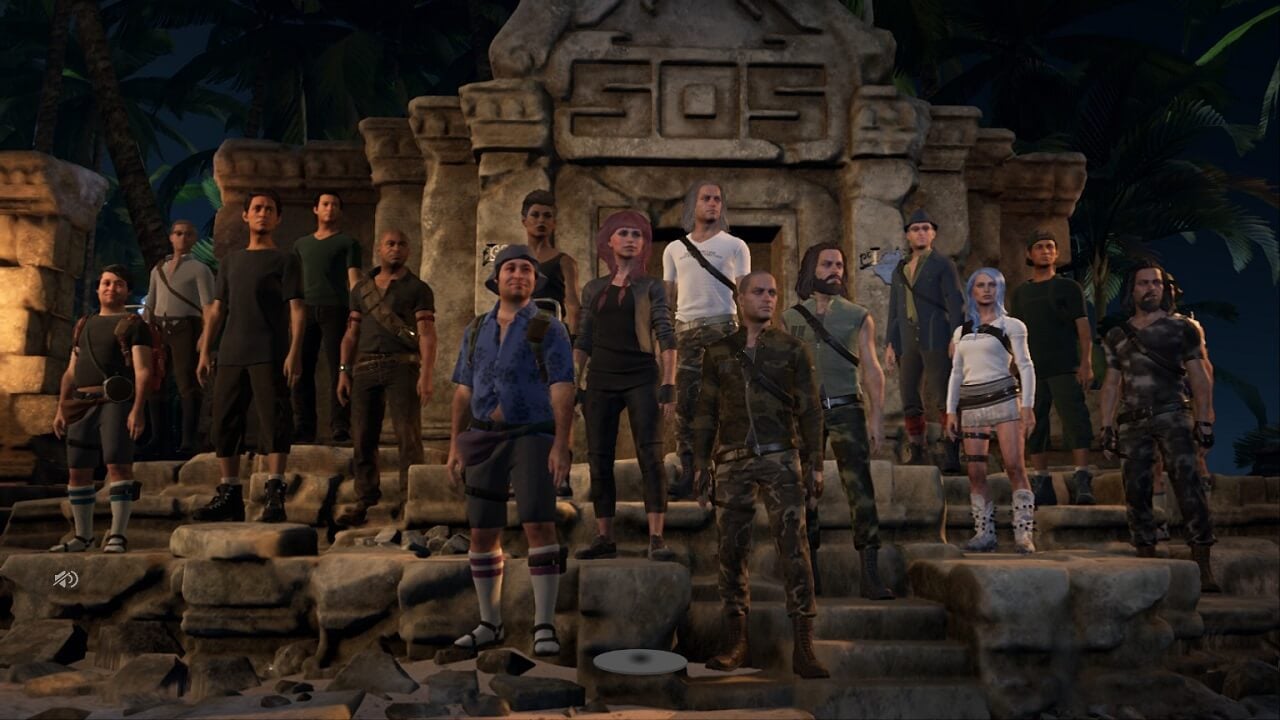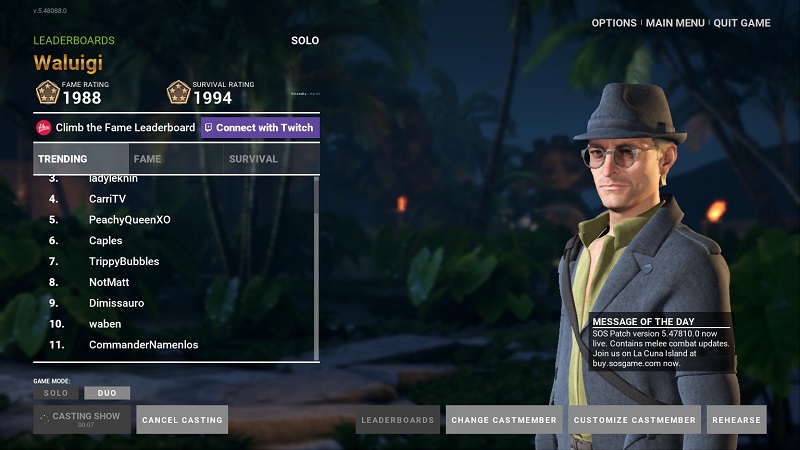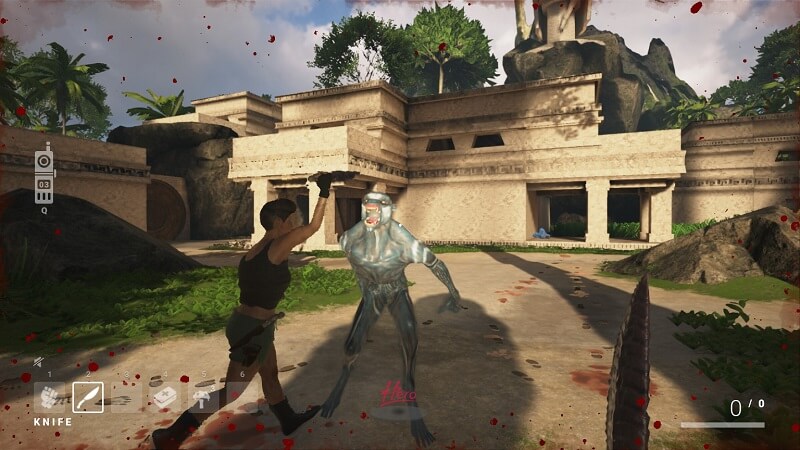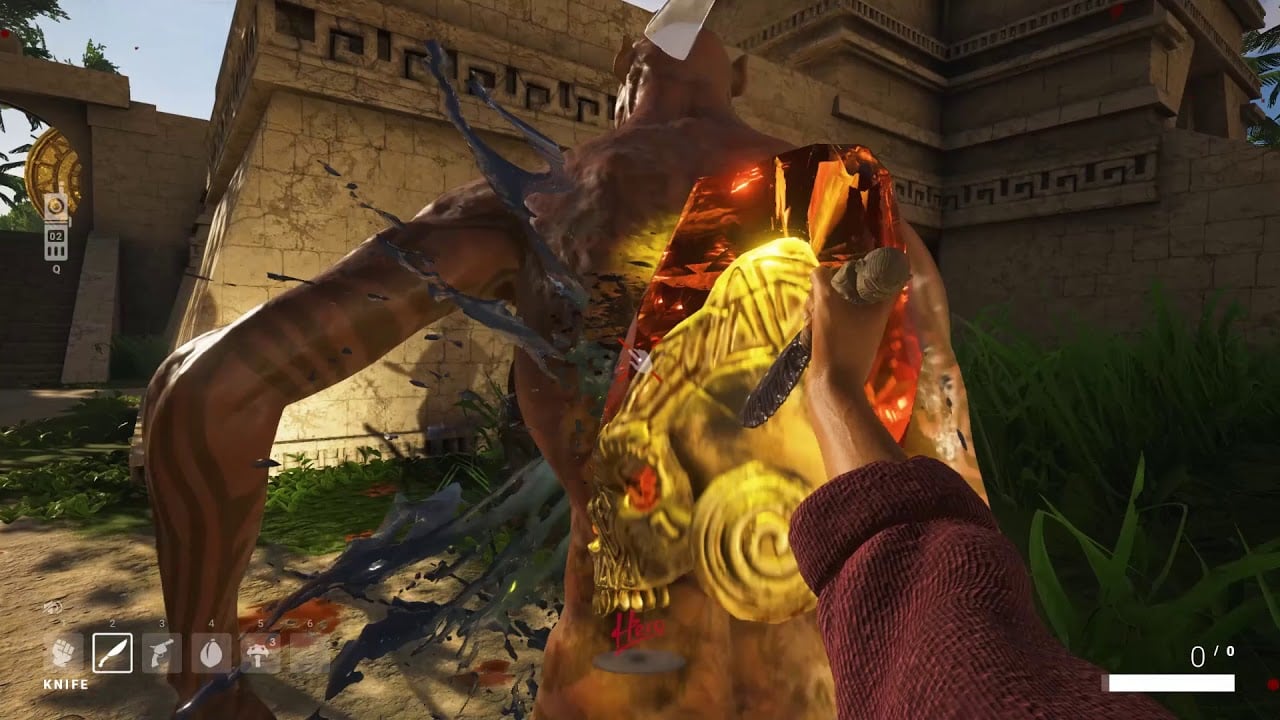Title: SOS
Available on: PC
Publisher: Outpost Games Inc.
Developer: Outpost Games Inc.
Genre: Survival, Action, Adventure
Official Site: https://www.sosgame.com/
Release Date: January 23, 2018 (for early access)
The battle royale genre of video game has been growing in popularity exponentially ever since Player Unknown’s Battlegrounds. It’s as if game developers got together and watched The Hunger Games–or, better yet, the Japanese movie, Battle Royale–and decided that they’d all see what they could come up with. SOS is the latest endeavor into the genre. Developed by Outpost Games Inc., the title screams battle royale but expands on it by enhancing the social experience for the players… and the viewers. It’s a game show made into a video game made into a Twitch streamer’s dream.
SOS has a rather simple concept: drop into La Cuna Island, find a relic, and get the heck out of there. What happens in between dropping in and being transported out is completely up to you. For example, you can attempt to capture a relic by yourself and hope to make it to the helicopter without any one else seeing you, or you can join an alliance with other players. But if you don’t have a relic, then you won’t be able to leave the island. A lot of people form alliances to strengthen their chances of survival/getting a relic, but even then only three people can escape the island. What, then, is the point of an alliance?
The biggest thing I noticed when playing the early access of SOS was how the social aspect of the game seemed to ingrain itself as the deal breaker if you wanted to win. For me, I didn’t really mind having to talk a lot when I was playing. I’m not a very social person in general, but when I’m playing a multiplayer game that requires some sort of coordination, using my voice more than usual doesn’t bother me.
Unfortunately, in SOS people can use their voice to do more than just win. There’s a “live audience” count before each game; sometimes it’s in the 200’s, sometimes it can be 40. It all depends on who’s playing in the match. Players with a higher fame rating are those more popular to the audience, while those with a high survival rating escape the Island more. Because the game is such a social event, some players have the ability to be more successful just because of their fame rating. For example, in one of my games, my group joined an alliance with a popular player (number 4 or 5 in the world). My whole team was all over this guy, in hopes that–in some weird method of transference–their popularity would somehow rub off onto them. Probably some Twitch Voodoo going on there.
I get it, though. The whole idea of SOS is based around a survival show comparable to Survivor. It may be important to escape the island, but, because your technically “on TV”, it’s also important to please the audience. But when the object of the game becomes to find a certain player who’s popular so my team could befriend them instead of winning… Well, that’s when I begin to question it more. Don’t get me wrong; I like the unique ambience of the game, one that feels like you may actually be on Survivor, and the online community is funny and, for the most part, willing to interact with anyone interested in making friends. I just think there’s too much focus on the social element. If I’m not in a group, then I’ll most likely lose. But if I find an alliance to join, then I’ll make it to the end unless one of the monsters/players from another team kills me.
The problem that I and so many other players have faced while playing SOS has to do with this wildly important social element. Having a microphone was essential to communicating with my alliance. Yet, for some reason after my third match, I was unable to use my microphone. Well, unless I was talking through the in-game radio. I think it’s strange the game’s most important element has a bug, because without my mic, I was unable to let other people know I was friendly. Silence is a curse in SOS. I ended up getting killed like 4 times because I couldn’t speak. It was nice when people were on my radio station, though, that way I could communicate with them; if they weren’t then it was usually game over for me.
Due to the stressed importance on social interactivity in-game, some players have the opportunity to shine more than others. Let’s face it: gamers are, for the most part, introverts at their core–besides the Twitch stars. So when a game like SOS is released, extroverts immediately have the upper hand. They can use their charisma to speak volumes to those around them, allowing them more opportunities to escape with a relic than others. In that game where that really popular player was in my alliance, guess who, out of all 5 of my teammates, was given the relic to escape with. Well, of course it was the famous player.
SOS feels like a social experiment more than a video game at times, and I can’t see how that’s a good thing as the title nears a final release. Regardless, I still had a blast playing and think you would too. Just don’t get too butthurt when your teammate betrays you because you’re not famous.










